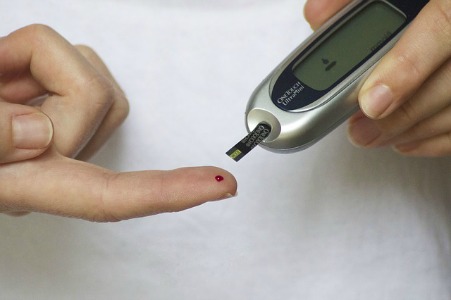The damage diabetes can cause to important organs like the kidneys, heart and even eyes are pretty well known, but new research reveals that poor blood sugar levels can damage the brain as well.
The study, published in the Neurology journal, found that brain damage from diabetes can result in lower cognitive function and the loss of ability to complete daily functions.
Dr. Vera Norak, an associate professor of neurology at Harvard Medical School and Beth Israel Deaconess Medical Center, led the research group in the diabetes study.
Norak and her associates monitored 66 people who were on average 65-years-old, over the course of two years.
About half of the group had diabetes while the other half didn’t, and in two years’ time, the group with diabetes received lower scores on cognitive tests than they did in the beginning of the research.
Those without diabetes experienced little to no decline in cognitive function over the time period.
So what’s the cause behind the decline?
Diabetes can impact the blood vessels responsiveness, preventing blood from flowing properly when an increased supply is needed. Any task that you do requires a certain part of your brain to become active, whether it’s brushing your teeth or singing a song.
In a healthy person without diabetes, flexible blood vessels swell to increase blood flow and bring oxygen to certain areas of the brain that are being used at the time. However, the blood vessels of a person with diabetes can become less flexible, and ultimately less responsive. It’s the fluctuating blood sugar levels can cause inflammation, major cell damage and nerve damage.
Frighteningly enough, these changes also occurred in people who were properly controlling their diabetes with medicine.
“Blood sugar control alone cannot treat [cognitive declines] associated with diabetes,” Novak said in Time magazine.
Novak wants to continue her line of research and he said there’s a need for new medication that increases vessel reactivity in diabetic patients. One method her team is exploring through a clinical trial is inhaling insulin through the nose.
Another possible route mentioned for future exploration included blood pressure meds that can manipulate brain vessel activity.
To learn more about her study, click here: http://www.neurology.org/content/early/2015/07/08/WNL.0000000000001820
LINKS:
http://clapway.com/2015/07/09/type-2-diabetes-can-affect-peoples-brain-and-daily-activities769/
http://clapway.com/2015/07/09/type-2-diabetes-can-affect-peoples-brain-and-daily-activities769/
(study) http://www.neurology.org/content/early/2015/07/08/WNL.0000000000001820

